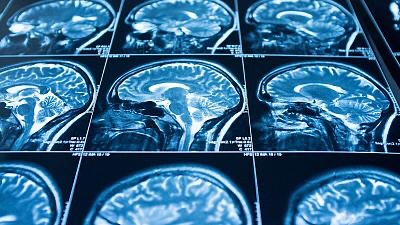Have you ever heard someone describe their life flashing before their eyes during a near-death experience? According to research, they might have been right.
While what occurs after we die is still a mystery that many have tried to solve for decades, we may have finally obtained some answers about what happens while we are dying.
Brain waves at the time of death were similar to those occurring during memory retrieval
— Daily Mail Online (@MailOnline) February 23, 2022
+ This supports the 'life recall' theory – that our whole life flashes before our eyes as we die
+ The brain may remain active and coordinated during and after the transition to death pic.twitter.com/ZDBcyHOczv
Doctors recently captured an 87-year-old man’s brain waves as he was suffering from a heart attack, according to the Daily Mail. The man passed away while hooked up to the electroencephalography (EEG) machine, which was being used to treat his seizures.

The doctors at Vancouver General Hospital in British Columbia, where the event occurred, believe that this is the first time they have captured the brain waves of a dying patient.
The dying patient’s rhythmic brain wave patterns were comparable to those seen during memory retrieval, meditation, and dreaming, according to data gathered from the EEG. This lends credence to the “life recall” notion, according to which dying people relive their entire life in a matter of seconds.
What happens in our brain when we die? Imagine reliving your entire life in the space of seconds. That is what our research shows that was published today. Take a look!
— Dr. Ajmal Zemmar (@DrAjmalZemmar) February 23, 2022
Enhanced Interplay of Neuronal Coherence and Coupling in the Dying Human Brain https://t.co/ag31ookslH
“We monitored 900 seconds of brain activity around the time of death and established a specific emphasis to study what happened in the 30 seconds before and after the heart stopped beating,” said Dr. Ajmal Zemmar, a neurosurgeon who was part of the team treating the nameless patient.

“We noticed alterations in a specific band of brain oscillations, so-called gamma oscillations, but also in others like delta, theta, alpha, and beta oscillations, just before and after the heart stopped working,” he continued.
“By creating memory retrieval oscillations, the brain may be performing a final recall of crucial life events soon before we die, similar to those observed in near-death experiences,” Zemmar stated.
“Something we may learn from this research is: even though our loved ones have their eyes closed and are ready to leave us to rest, their brains may be replaying some of the nicest moments they experienced in their lives,” Zemmar added, elaborating on how this adds weight to people’s claims of seeing their lives flash before their eyes.
He cautioned, however, that the findings should not be considered convincing support of the “life recall” notion because they were tested on a patient with major brain-related problems such as swelling.
This new research was published on Tuesday in the journal “Frontiers in Aging Neuroscience”, with Zemmar sharing, “These findings challenge our understanding of when exactly life ends and generate important subsequent questions, such as those related to the timing of organ donation.”
“I think there’s something mystical and spiritual about this whole near-death experience,” Zemmar told the BBC. “And findings like this – it’s a moment that scientists lives for.”


